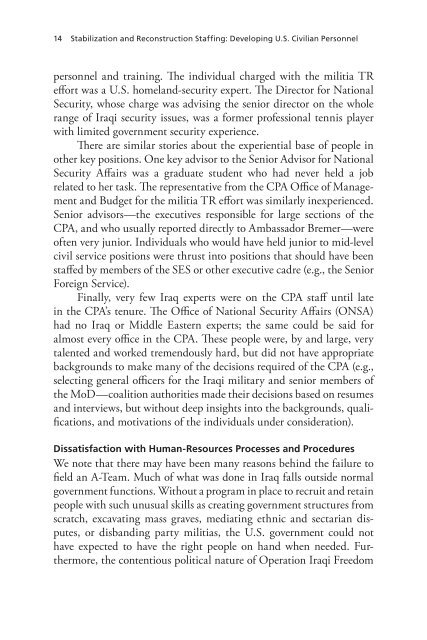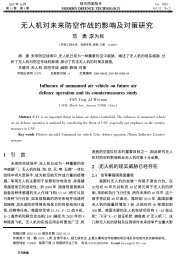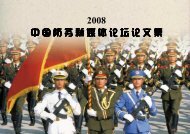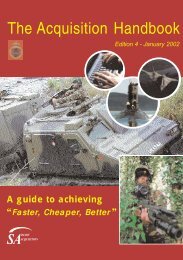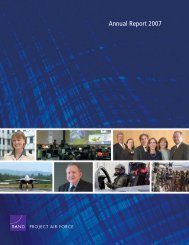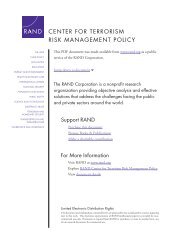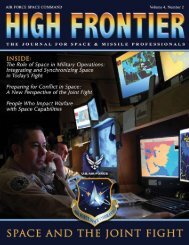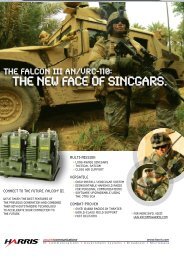Stabilization and Reconstruction Staffing - RAND Corporation
Stabilization and Reconstruction Staffing - RAND Corporation
Stabilization and Reconstruction Staffing - RAND Corporation
You also want an ePaper? Increase the reach of your titles
YUMPU automatically turns print PDFs into web optimized ePapers that Google loves.
14 <strong>Stabilization</strong> <strong>and</strong> <strong>Reconstruction</strong> <strong>Staffing</strong>: Developing U.S. Civilian Personnelpersonnel <strong>and</strong> training. The individual charged with the militia TReffort was a U.S. homel<strong>and</strong>-security expert. The Director for NationalSecurity, whose charge was advising the senior director on the wholerange of Iraqi security issues, was a former professional tennis playerwith limited government security experience.There are similar stories about the experiential base of people inother key positions. One key advisor to the Senior Advisor for NationalSecurity Affairs was a graduate student who had never held a jobrelated to her task. The representative from the CPA Office of Management<strong>and</strong> Budget for the militia TR effort was similarly inexperienced.Senior advisors—the executives responsible for large sections of theCPA, <strong>and</strong> who usually reported directly to Ambassador Bremer—wereoften very junior. Individuals who would have held junior to mid-levelcivil service positions were thrust into positions that should have beenstaffed by members of the SES or other executive cadre (e.g., the SeniorForeign Service).Finally, very few Iraq experts were on the CPA staff until latein the CPA’s tenure. The Office of National Security Affairs (ONSA)had no Iraq or Middle Eastern experts; the same could be said foralmost every office in the CPA. These people were, by <strong>and</strong> large, verytalented <strong>and</strong> worked tremendously hard, but did not have appropriatebackgrounds to make many of the decisions required of the CPA (e.g.,selecting general officers for the Iraqi military <strong>and</strong> senior members ofthe MoD—coalition authorities made their decisions based on resumes<strong>and</strong> interviews, but without deep insights into the backgrounds, qualifications,<strong>and</strong> motivations of the individuals under consideration).Dissatisfaction with Human-Resources Processes <strong>and</strong> ProceduresWe note that there may have been many reasons behind the failure tofield an A-Team. Much of what was done in Iraq falls outside normalgovernment functions. Without a program in place to recruit <strong>and</strong> retainpeople with such unusual skills as creating government structures fromscratch, excavating mass graves, mediating ethnic <strong>and</strong> sectarian disputes,or disb<strong>and</strong>ing party militias, the U.S. government could nothave expected to have the right people on h<strong>and</strong> when needed. Furthermore,the contentious political nature of Operation Iraqi Freedom


